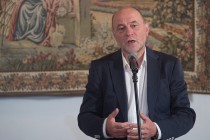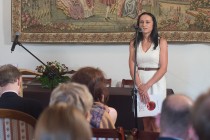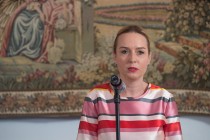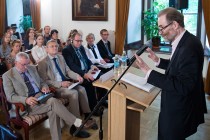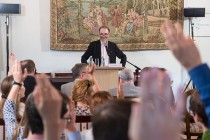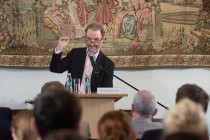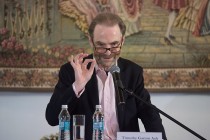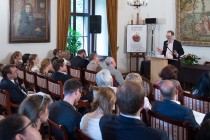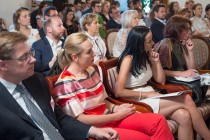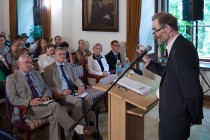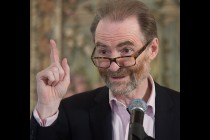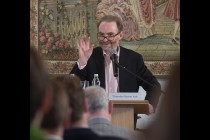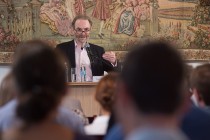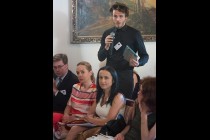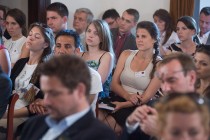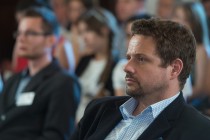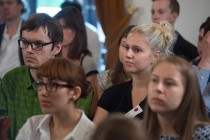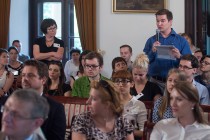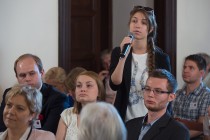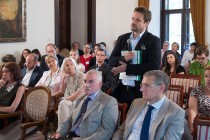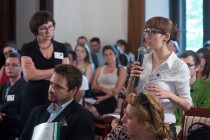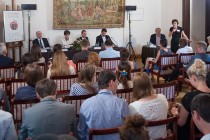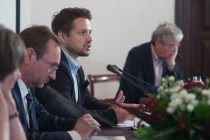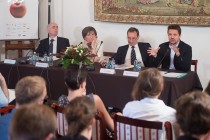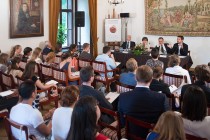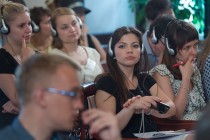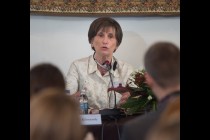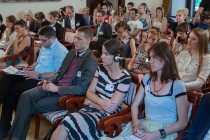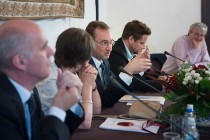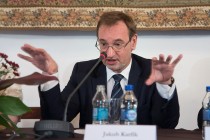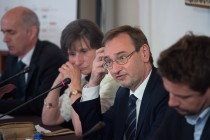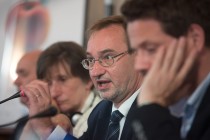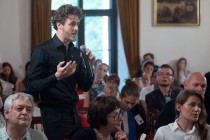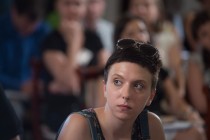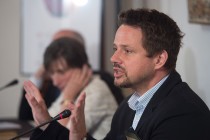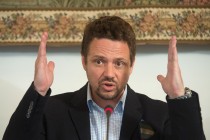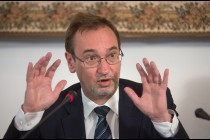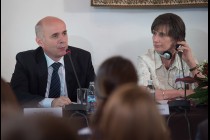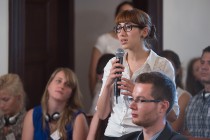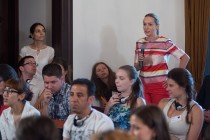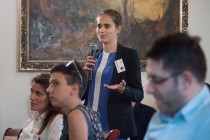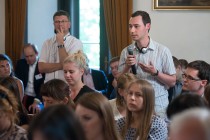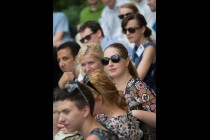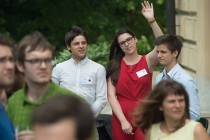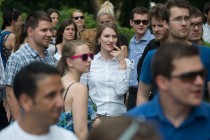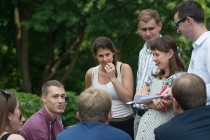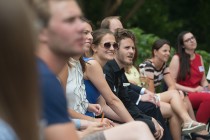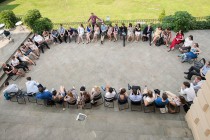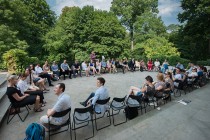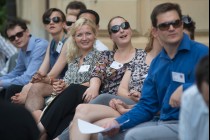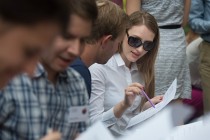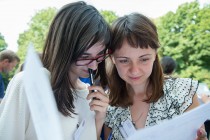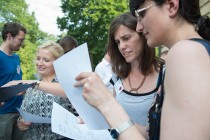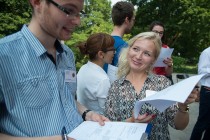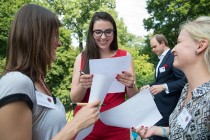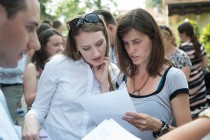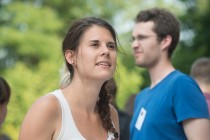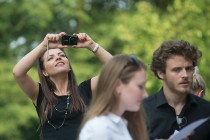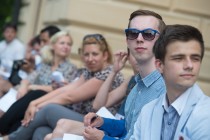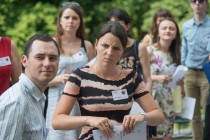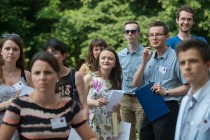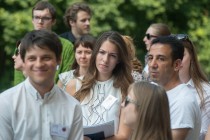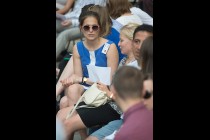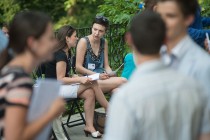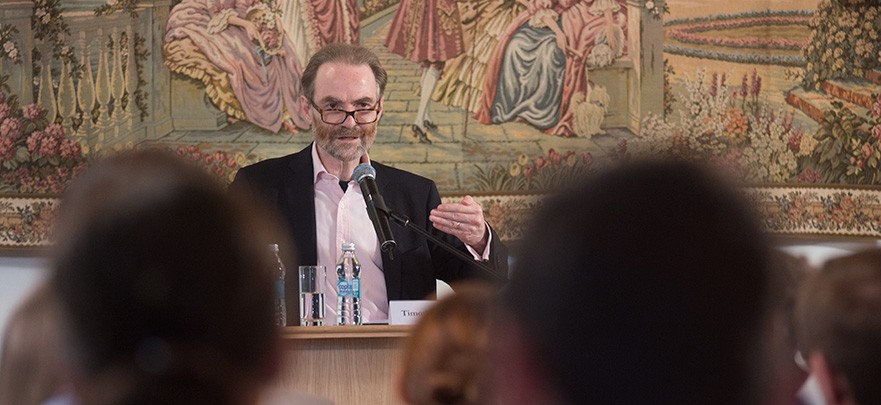
The 14th Visegrad Summer School was officially opened in Villa Decius on Monday, hosting 50 participants from countries of Central and Eastern Europe.
Danuta Glondys, director of Villa Decius Association, welcomed the participants, special guests and partners of Villa Decius Association. “I hope that time spend with us during the 14th Visegrad Summer School would be fruitful for all of you” – she noted. The same wish expressed Bogusław Sonik, member of the Villa Decius Association.
Deputy Director ofthe Department of Culture and National Heritagein Municipality of Krakow, Katarzyna Olesiak congratulatedthe participants and she was sure,that they would spendunforgettable moments in the magical Krakow.
Ukraine, Greece and the European Crisis
This year the traditional inaugural lecture was held by Timothy Garton Ash, well known British historian, Professor of European Studies at Oxford University. In the beginning he asked the audience few questions about the idea of the European integration and evaluation of the functioningof EU, which initiateda talk aboutthe current challenges and the future of Europe.
Professor described thechange in the perception of the European Union during the past 10 years, when EU initiallywas consideredas a model ofdemocratic values,and then has become an example of non-functional institution. Illustration of thepolitical weakness of EUwere separatist movements in Europe, the crisis in Greece and the war in Ukraine.
“There are many heroes in Greek mythology but there are no heroes in history of Greek crisis” – he said, talking about the current situation in Greece. Answering questions from the audience he stressed, that EU could not help both Greece and Ukraine if these countries do not help themselves. Professoralso noted that an insufficient number of soldiers is one of the most important problems ofEU.
Not so optimistic lecture about the nowadays situation of EU professor ended with a recommendation that the member states should strengthen the common foreign policy.
Debating on V4
“Challenges of the Visegrad Cooperation” – a debate took place with this title between diplomats of Hungary, Czech Republic, Slovakia and Poland, led by Krzysztof Bobiński, co-founder and publisher of Unia&Polska magazine.
“What we have actually in common?” – asked Bobiński, referring to the difficulties of cooperation in the V4. Rafał Trzaskowski from polish Ministry of Foreign Affairs, noted that Visegrad countries know each other much better than West European partners and they understand the context immediately. He also stressed that slight differences are a normal thing in a cooperation.
Consul Generalof Hungary in Krakow, Adrienne Körmendy wondered whether Central Europe is only a "product of thought", while Pavol Popjak, Secretary of the Embassy of Slovakia, pointed out that history is a factor that both unite countries and divide them. James Karfík – Ambassador of the Czech Republic in Poland presented thecompleted projects of the VisegradGroup countries during the last presidency.
At the end ofthe first day of the VSS participants took part in integration workshops.

